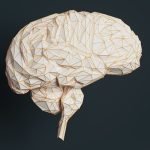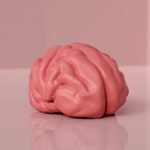New blood test may detect Alzheimer’s disease decade before symptoms show
Alzheimer's disease is a neurodegenerative condition that causes progressive memory loss and cognitive impairment.
Although the disease begins to affect the brain decades before symptoms...
Scientists find how to predict Alzheimer’s disease in healthy older people
Alzheimer's disease is a type of sickness that affects your brain. It makes you lose your memory and makes it harder to think or...
Uncovering early brain network changes in Alzheimer’s disease
A recent study conducted at University of Tsukuba has shed light on brain network changes in a specific population at high risk for Alzheimer's disease.
Deep sleep may protect against memory loss in Alzheimer’s disease
New research from the University of California, Berkeley suggests that deep sleep, also known as non-REM slow-wave sleep, may help mitigate memory loss in...
AI and Alzheimer’s: A journey into the brain
Scientists come up with a new way to search for answers for Alzheimer's disease using artificial intelligence (AI).
Could we stop Alzheimer’s? New clues found in the brain
What is Alzheimer's Disease?
Alzheimer's is a disease that affects the brain. It's a type of dementia, which means it can cause problems with memory,...
Why the oldest-old is free of Alzheimer’s disease
A team led by researchers from the University of California, Irvine has made an interesting discovery about the oldest-old people (those over 90) who...
Eye exams may predict Alzheimer’s disease, Duke study finds
A study from the Duke Eye Center suggests that the loss of blood vessels in the retina could signal Alzheimer's disease, paving the way...
Why subjective cognitive decline is a growing health issue among women
Have you thought about your memory lately? According to the CDC, 11% of people over age 45 have Subjective Cognitive Decline.
A possible cause of inflammation in Alzheimer’s disease
Alzheimer's disease is a sickness that affects the brain. People with this disease slowly lose their memory and ability to think clearly.
One sign of...










